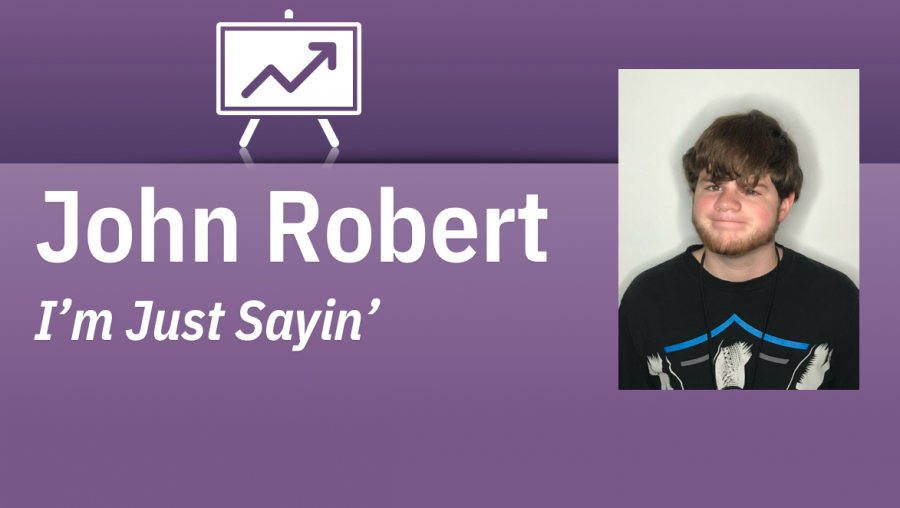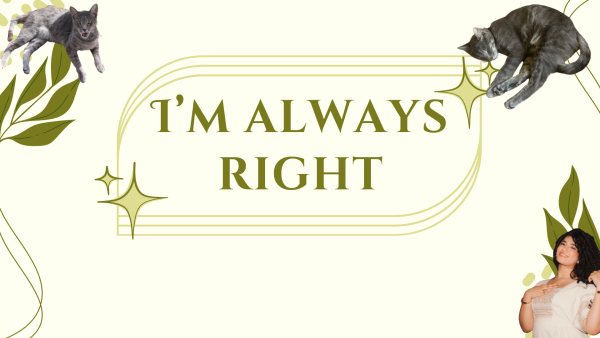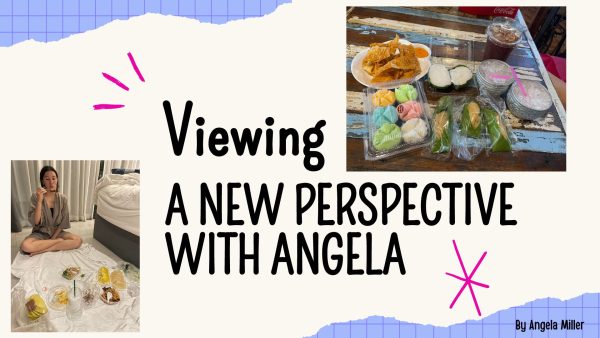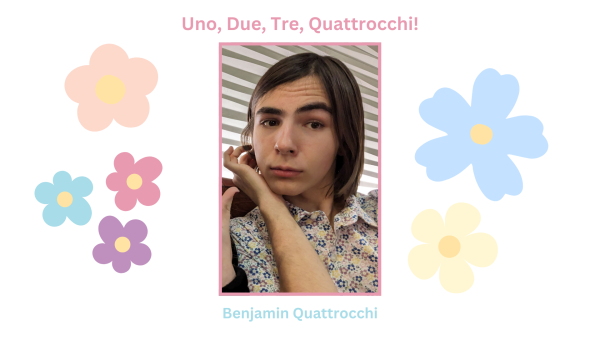In Defense of Human Freedom and Religious Liberty
October 8, 2021
In July 2012, Charlie Craig and David Mullins went to Masterpiece Cakeshop in Lakewood, Colorado. They requested the owner, Jack Phillips, design and make them a cake for their wedding. Phillips, a religious man, declined to make the cake based on his personal and religious liberty. The case divided the nation and sparked a debate over religious liberty and the role the government should play in it all.
The fact of the matter is, regardless of anyone’s personal views on the morality of declining baking a cake for a same-sex couple, Jack Phillips was well within his rights, as is anyone in the private sector who denies service. We are all entitled to the same basic property rights and the freedom of association. Governments are instituted by the people to ensure peoples rights and liberties. Governments are not created to trample over peoples rights.
Our country was founded on the idea that we are all equal under the law and guaranteed the same rights under the law regardless of who we are and what we believe and this is perfectly summarized best in the Declaration of Independence, the document that cemented the United States founding ideology and the fight for freedom. “We hold these truths to be self-evident, that all men are created equal, that they are endowed by their Creator with certain unalienable Rights, that among these are Life, Liberty and the pursuit of Happiness.–That to secure these rights, Governments are instituted among Men.”
Jefferson understood better than anyone that governments were created to protect all of our rights, even if he didn’t always live up to these principles. That even if we have opposing viewpoints, we were all created equal and that equality comes with equal protection of the law.
Some people may say giving a business owner this freedom doesn’t reflect the standard of equal protection of the law, but this couldn’t be further from the truth. Giving a business owner the freedom to run his own private business as he sees fit isn’t a violation of equality before the law. It affords the business owner the same right to his property as everyone else. Jefferson understood that government wasn’t a tool to be used as an iron fist to push our individual views on anyone with a different viewpoint, but a safeguard for our rights and our freedom. The push for a bill of rights in the United States Constitution was a direct attempt to create basic protections for individuals from government overreach and serve as the safeguard that was always intended.
You are not entitled to, nor do you have a right to, someone else’s private property, services, or labor unless they consensually give it to you. The government also doesn’t have the right to dictate the actions of consenting adults when no one’s rights are in danger and this disregard for people’s freedom is unacceptable.
We can’t allow ourselves as a nation to become selective with who is granted the right to their private property based on partisan views on sociopolitical issues, society, and religion. Legally we should all be entitled to the same protections. Giving a business owner the right to refuse service on their own private property is not a violation of those protections. The couple in the case of Jack Phillips wasn’t entitled to his service or his property. No one is entitled to someone else’s property unless the owner of the property consensually gives it to you.
It’s important when it comes to property rights to make a clear distinction between the public and the private sector. The right to refuse service and employment by private companies and private individuals do not apply to the public sector. The public sector and public services as a whole are funded by taxpayers and owned by the public. For example, schools and other public services shouldn’t be denied to anyone and there should be clear protections for people in taxpayer-funded institutions, but the private sector is a completely different story when it comes to the protection of business owners.
This selective view of who is granted individual liberty isn’t anything new to public discourse. Justifications for anti-sodomy laws and bans on same-sex marriages are ripe with similar arguments where people use their own views of what they see as a moral activity, as justification for banning it. The arguments were not based around the United States Constitution and our country’s founding principles, such as our fundamental right to our life, liberty, and property. They were based on people’s own biased and partisan views on the morality of same-sex relationships and human activity.
Anti-discrimination laws in the private sector are blatant violations of business owners’ constitutional right to their property guaranteed in section 1 of the 14th Amendment. “No State shall make or enforce any law which shall abridge the privileges or immunities of citizens of the United States; nor shall any State deprive any person of life, liberty, or property, without due process of law; nor deny to any person within its jurisdiction the equal protection of the laws.”
The basic protections outlined here in the 14th Amendment confirm individuals’ right to their private property and set up restrictions on the government to protect the people from government overreach.
In the end, the Supreme Court protected Jack Phillips from governmental overreach and sided with religious freedom in a 7-2 decision because Phillips had the right to say no due to the 1st Amendment and the freedom of expression that goes along with baking a cake. Jack Phillips saw decorating cakes as a form of art used to honor God. He believed decorating a cake for a same-sex couple would go against his views and dishonor God. It’s important to note he was fully willing to sell other baked goods to the couple, just not a cake due to his personal beliefs.
In the case of Jack Phillips, or any other religious baker, you don’t have to like their beliefs or support their business if it goes against what you think is right. There are plenty of other bakers that would be more than willing to accommodate same-sex couples.
Even people with viewpoints many people view as morally wrong should still be afforded the same basic constitutional rights as all citizens of the United States and stripping them of said rights is completely unethical and goes against basic human freedoms guaranteed to all citizens of the United States.
Also, a key piece of this case is the hypocrisy of the situation. People who staunchly support religious liberty but support bans on same-sex marriage and anti-sodomy laws are unaware of their blatant hypocrisy. They fight for religious liberty and their basic right to their own property but seek to deny basic freedoms to people who just want to live freely without government interference. Furthermore, people who strongly support the right for same-sex couples to associate freely and their rights to adopt and marry, but invalidate the rights of Americans to their property and their religious freedom isn’t any less hypocritical. They fight for people’s right to marry and associate freely but invalidate religious peoples’ right to have control over their own private businesses and for them to live freely without the same government interference.
Whether it be a case of religion, a same-sex couple, or anyone facing an attack on their liberty, we must not allow the country to fall into one-sided arguments and we should not be using our own moral standards as justification for violating people’s rights and freedoms. In a free country, there is room for different religions, viewpoints, and world views and we don’t have to accept or agree with each other’s viewpoints but we should give everyone the base level tolerance of living freely without government interference when they’re not violating anyone’s rights.








